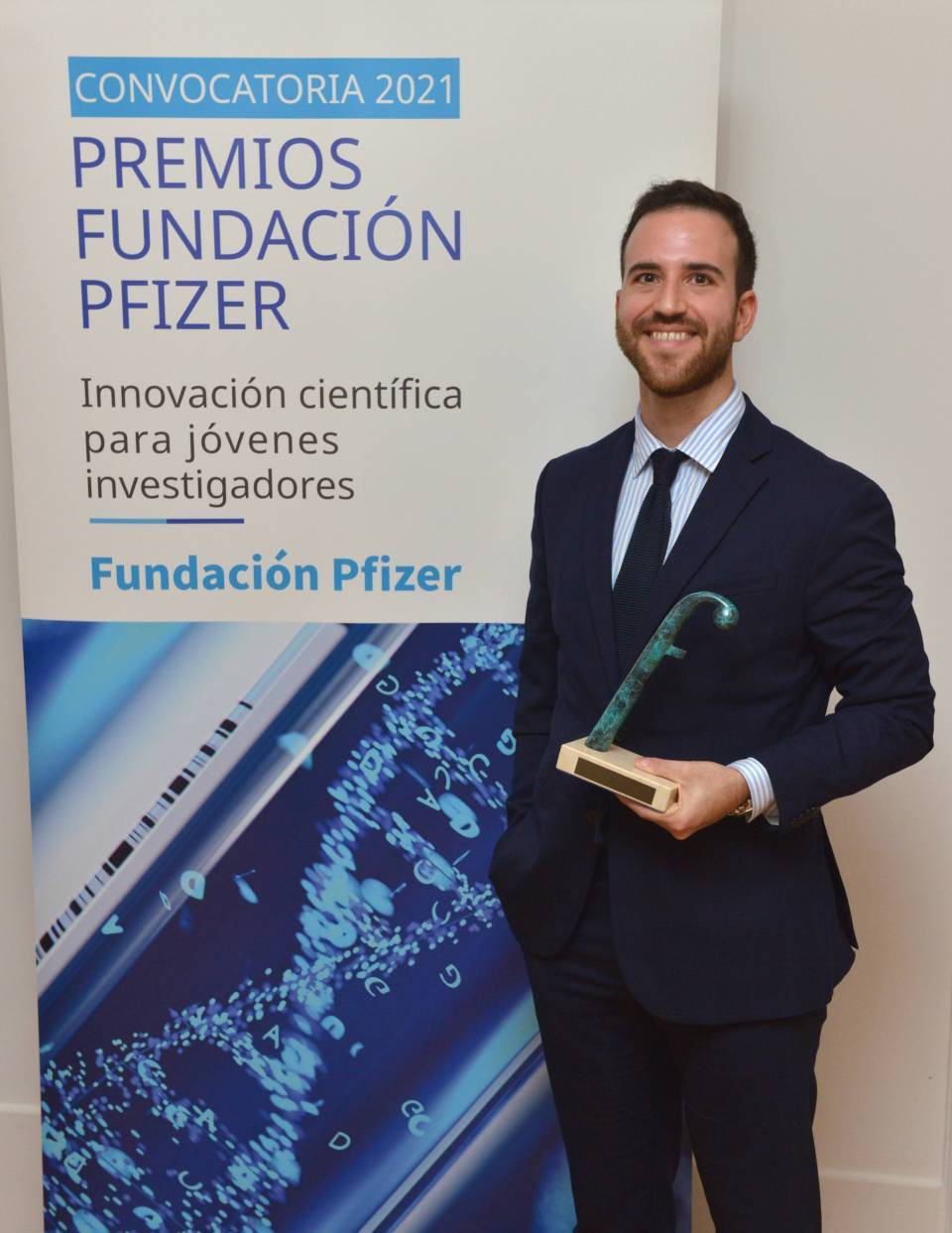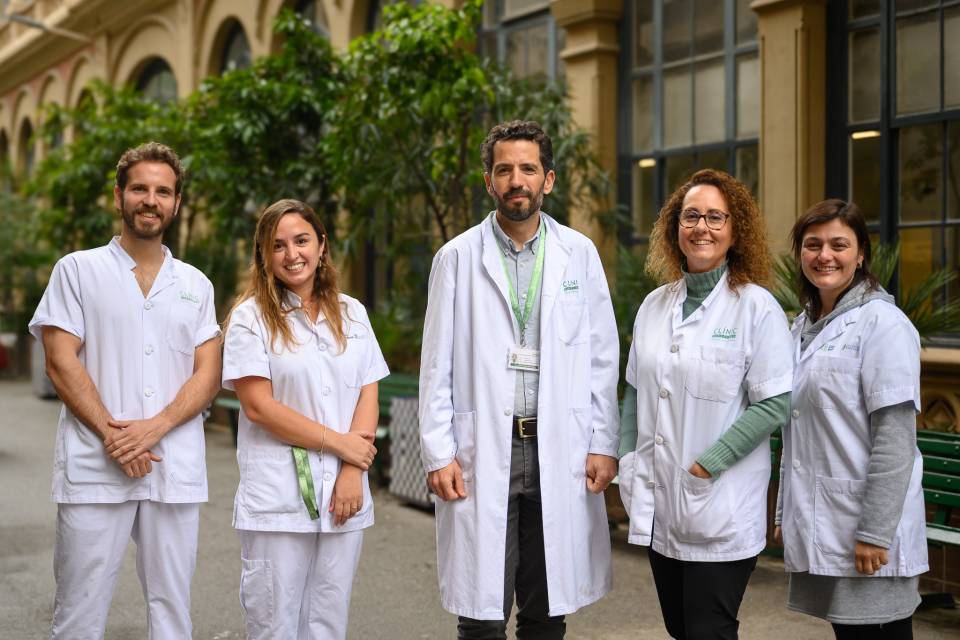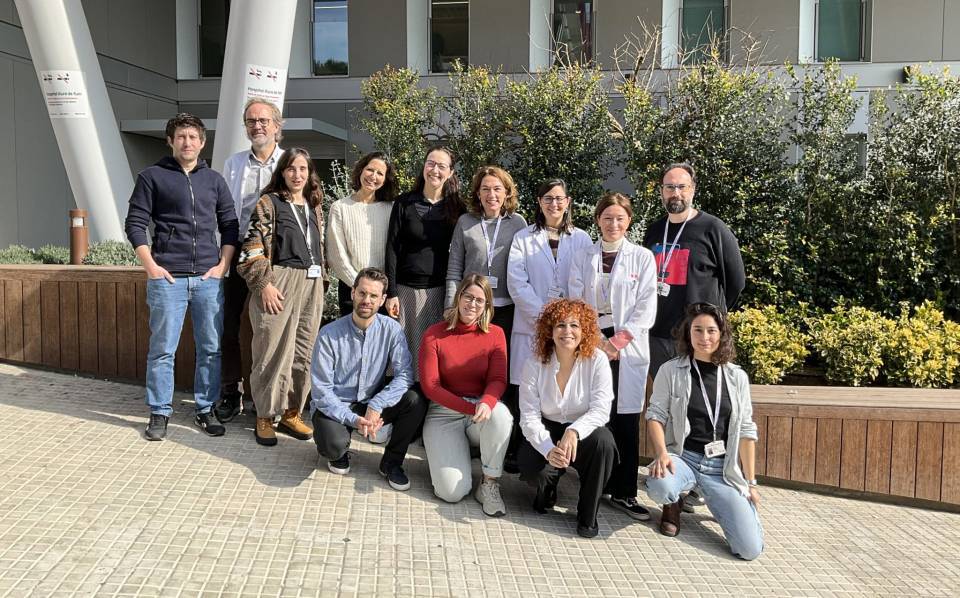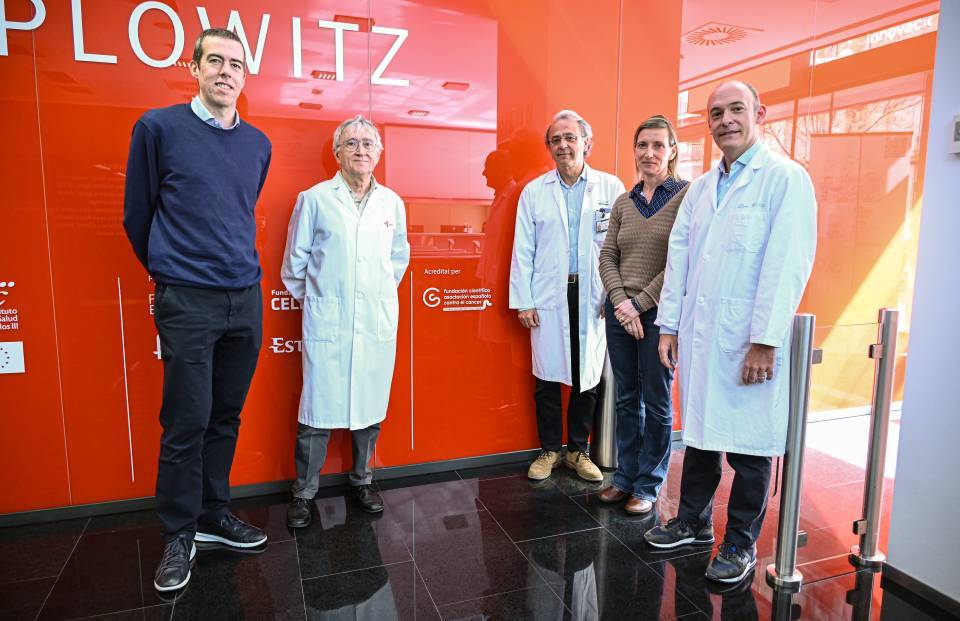On November 22nd, the Pfizer Foundation delivered the XXII awards for Scientific Innovation for Young Researchers, consisting of clinical and basic categories. In the basic category, Martí Duran-Ferrer, a postdoctoral researcher from the Biomedical Epigenomics lab directed by Iñaki Martín-Subero at IDIBAPS, has been awarded for the study published in Nature Cancer in 2020. This work, in which Duran-Ferrer signs as the first author, describes an epigenetic clock that allows to know how much cells have divided in the past.
This new bioinformatics tool can predict the future growth of the tumor and the clinical evolution of the patient, so that treatment strategies according to the biological risk of the tumor could be defined. Anticipating the clinical behavior of patients with lymphoid tumors constitutes an important variable in the personalized treatment of the disease. “The epigenetic changes associated with cellular growth are accumulative. The quantification of these DNA methylation changes that take place during cell division has allowed us to develop this molecular clock”, comments Duran-Ferrer. “After analyzing the data in more than 2000 patients with different types of leukemia and lymphoma, we have seen that if this clock has advanced rapidly in the past, it will also tend to do so in the future. This is related to the presence of certain genetic mutations and an adverse clinical behavior, so we can predict the clinical behavior of each patient individually, which represents a great advance in the field of precision medicine”.
The researcher thanks the Pfizer Foundation for its support in making the science carried out in Spain visible and, especially, that of young researchers. Each award is endowed with 10,000 Euros that will allow researchers to continue with their line of research.
In this edition, more than one hundred researchers under 40 years of age were considered for the awards. Both the study by Duran-Ferrer in the basic category, and the one awarded in the clinical category, presented improvements in the diagnosis and monitoring of oncological diseases. Nowadays, cancer is the second leading cause of death worldwide. It is estimated that last year, cancer caused 9.9 million deaths worldwide. In the coming years, mortality is expected to increase to 16 million deaths per year by 2040.




